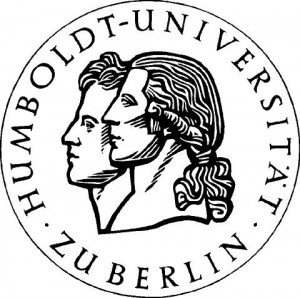7.–8. 10.
|
Bernhard Forchtner
|
 |
Humboldt Center of Social and Political Studies Institut für Sozialwissenschaft Humboldt-Universität zu Berlin Odborné zaměření: http://www.sowi.hu-berlin.de/hcsp/personen/bernhard-forchtner/CV%20Bernhard%20Forchtner |
| 1 Critical Discourse Analysis: Theory/ies and Methods. | |
| 7. 10. / 17.30/ č. 18 | In this lecture, I will introduce one of the more recent developments in linguistics (which has been keenly embraced by various social sciences), that is the rise of Critical Discourse Analysis (CDA) since around the early 1990s.
CDA investigates naturally occurring written and spoken language going beyond the sentence level, as well as other forms of meaning-making, such as visuals and sounds, seeing them as irreducible elements in the (re)production of society. Based on such analyses, CDA aims to demystify the role that language plays in this (re)production. I will offer, first, a brief overview of the emergence of CDA and its interdisciplinary character, centred on linguistics and the social sciences and based on language-oriented methods of analysis. I will then provide a short outline of two key trends within CDA (those championed by Norman Fairclough and Teun van Dijk) before focusing, in detail, on the third approach within so-called ‘core CDA’: the Discourse-Historical Approach (DHA). Here, I will introduce key analytical concepts (discourse, context, genre, discursive strategies, etc.). I conclude by means of touching briefly on some criticisms directed against CDA and relate them to what has been presented throughout the lecture. |
| 2 On the Discursive Construction of a „Reformed/ing Subject“ | |
| 8. 10./ 17.30/ č. 300 | This lecture will discuss the discursive construction of a ‘new Europe’ in order to show how the analytical categories provided by the Discourse-Historical Approach (DHA) to Critical Discourse Analysis (CDA) can be utilised.
I will do so by investigating the discursive construction of EUrope’s past, present and future by leading politicians in the European Union in an ‘age of apology’. The analysis illustrates that, firstly, a ‘new Europe’, based on admitting ‘our’ past wrongdoings, is narrated. Secondly, however, I show how such a (potentially self-critical) narration of the in-group’s past can be transformed into a self-righteous attitude towards ‘others’ as not having learnt the lessons from the past. In other words, I illustrate how a subject who narrates itself as being ‘reformed’ turns into a ‘reforming’ subject. The lecture will discuss the application of core analytical categories of the DHA. In addition to such a qualitative analysis, I will draw on quantitative corpus linguistics (CL) within the framework of the DHA. Furthermore, and in line with the interdisciplinary character of the DHA, I will make use of ideas developed in Reinhart Koselleck’s Begriffsgeschichte (conceptual history). In sum, the lecture will provide an overview of how both traditional categories as well as less regularly applied ones are used within the framework of critical discourse analysis |